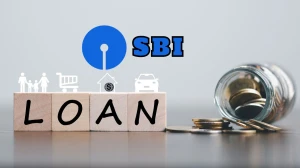
What is a Mortgage and Why Are Mortgage Rates So High?
A mortgage is a real estate loan repaid over time, and current high rates, influenced by the 10-year Treasury bond rate and Federal Reserve actions to curb inflation, create a cautious environment for homebuyers.
by Sai V
Published Jul 28, 2023 | Updated Nov 29, 2023 | 📖 5 min read
What is a Mortgage?
A mortgage is a financial arrangement that involves a borrower obtaining a loan from a lender to purchase or maintain real estate, such as a home or land. The borrower commits to repaying the loan over time through a series of regular payments, which include both principal and interest. The property itself serves as collateral, securing the loan.
To secure a mortgage, borrowers must meet certain criteria, including minimum credit scores and down payments, and undergo a thorough underwriting process. Various types of mortgages, such as fixed-rate and adjustable-rate loans, cater to different borrower needs, influencing the overall cost based on factors like loan type, term, and interest rates.
Why Are Mortgage Rates So High?
Mortgage rates in the United States have surged to a 22-year high of 7.23% for the 30-year fixed-rate mortgage, the highest since June 2001. The primary driver is the bond market, notably the 10-year Treasury bond rate, influenced by the Federal Reserve's efforts to curb inflation by increasing short-term interest rates. This, in turn, has raised borrowing costs for banks, prompting them to elevate rates on consumer loans, including mortgages.
The complexity of the economy, coupled with the lingering impact of the pandemic on housing dynamics, has created a challenging environment, cooling demand for homes and leading to a decline in sales. While economists anticipate the possibility of rates decreasing in the coming months, the current high rates are shaping a more cautious and competitive landscape for homebuyers.
Related Article>> When Will Mortgage Rates Go Down?
How to Pay Off Mortgage Faster?
Mortgage liberation is within reach with these actionable strategies. From optimizing your budget to exploring refinancing options, discover effective techniques tailored to expedite your journey to a mortgage-free future. When embarking on this path, it's crucial to start by understanding how to choose the best mortgage that aligns with your financial goals and preferences.
Optimize Your Budget
To expedite mortgage payoff, consider optimizing your budget by increasing your monthly payments beyond the required amount. Even a modest additional contribution can have a significant impact on reducing both the repayment period and overall interest costs. Utilizing a mortgage calculator will empower you to precisely assess how these extra payments can accelerate your path to debt freedom.
Strategically Time Extra Payments
Implementing well-timed extra payments throughout the year can be a strategic approach to paying off your mortgage faster. Use windfalls such as annual bonuses or tax returns to make lump-sum contributions. It's crucial to confirm with your lender that these additional payments will directly contribute to reducing the loan principal, maximizing their impact on your overall mortgage balance.
Refinance for a Quicker Repayment
Explore the option of refinancing to a shorter term if your financial situation allows. Shorter loan terms often come with lower interest rates, potentially leading to substantial savings. Carefully scrutinize and compare the monthly payments and total interest paid for different term lengths. For instance, transitioning from a 30-year to a 15-year term can significantly accelerate mortgage payoff, resulting in noteworthy interest savings.
|
Loan Term |
Interest Rate |
Monthly Payment |
Total Interest Paid |
|
30 years |
3% |
$1,054.01 |
$129,443.63 |
|
15 years |
2.25% |
$1,637.71 |
$44,788.15 |
Rebalance with Mortgage Recasting
Consider rebalancing your mortgage through recasting by making a substantial lump-sum payment toward the principal balance. This results in a lower monthly payment as the lender restructures the loan. The savings on interest can be redirected towards further expediting mortgage payoff. However, be mindful of potential fees associated with recasting, and ensure your loan type is eligible for this strategy.
Opt for Biweekly Payments
Another effective strategy to pay off your mortgage early is by opting for biweekly payments. This involves splitting your monthly mortgage payment into two smaller payments and paying them biweekly. With 26 payments annually instead of the standard 12, you effectively make an extra payment each year. This not only accelerates your loan payoff but also reduces overall interest expenses. Before making this adjustment, confirm with your lender that biweekly payments are permissible and inquire about any potential fees associated with this payment schedule.
Your path to homeownership begins with MarketsHost. We are your ultimate resource for home financing solutions. Trust us to guide you through the maze of Mortgage options, ensuring you make an informed decision.
Is Mortgage Interest Deductible?
Yes, mortgage interest is deductible under certain conditions. The Mortgage Interest Deduction allows homeowners to reduce their taxable income by the amount of mortgage interest paid during the tax year. However, the deduction is subject to limitations, with the first $750,000 of mortgage debt qualifying for the deduction (or $1 million for homes purchased before December 16, 2017). It is essential to monitor these rates when considering property investments.
It is also necessary to itemize deductions on Schedule A of Form 1040 and follow specific guidelines outlined by the IRS. Non-deductible expenses include homeowners insurance, extra principal payments, title insurance, settlement costs, and other exclusions detailed in the tax code. Additionally, consulting IRS Publication 936 or a qualified tax professional is recommended for a thorough understanding of eligibility and potential complexities."
What is a Mortgage - FAQs
1. What is a mortgage?
A mortgage is a loan that allows you to purchase or maintain real estate, with the property serving as collateral.
2. Why are mortgage rates currently high?
Mortgage rates are elevated due to the Federal Reserve's efforts to control inflation, impacting the bond market and increasing borrowing costs for banks.
3. How can I pay off my mortgage faster?
You can expedite mortgage payoff by optimizing your budget, making well-timed extra payments, exploring refinancing options, and considering strategies like mortgage recasting and biweekly payments.
4. Is mortgage interest deductible?
Yes, mortgage interest is deductible under certain conditions, allowing homeowners to reduce their taxable income based on the amount of interest paid during the tax year.
5. What criteria do borrowers need to meet for a mortgage?
To secure a mortgage, borrowers must meet criteria such as minimum credit scores, down payments, and undergo a thorough underwriting process.




